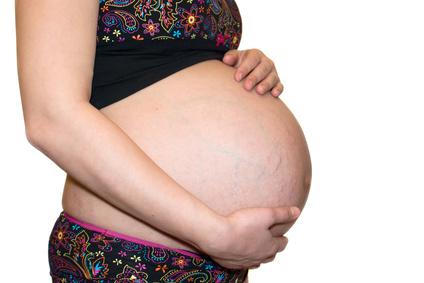Lower abdominal pain is common during pregnancy. Most times, it is nothing to become overly concerned with, according to the March of Dimes. However, some types of lower abdominal pain–especially if accompanied by bleeding–could indicate potential pregnancy complications or even situations, such as miscarriage. Learning the characteristics that distinguish normal versus potentially abnormal lower abdominal pain can help you get prompt medical attention if necessary.
Warnings
Severe lower abdominal pain can indicate several potential problems ranging from miscarriage to a tubal pregnancy that cannot continue, according to the March of Dimes. If you experience bleeding, especially bleeding with clot-like material, you may be suffering a miscarriage and need prompt medical intervention. Also, dizziness, fainting and chills along with your lower abdominal pain also indicate potentially serious pregnancy-related complications.
Prevention and Treatment of Ordinary Pains
Some lower stomach aches during pregnancy aren’t preventable, according to the March of Dimes. However, as an expectant mom, you can reduce your chances of everyday lower abdominal pains or, in some cases, alleviate these uncomfortable sensations once they begin. The March of Dimes recommends you bend toward any abdominal pain in an effort to relieve it or perhaps find some light housework or similar activity to complete. You can also change your position to try to alleviate gas-related lower abdominal pain.
Treatment of Serious Causes
Not all miscarriages can be prevented, according to the March of Dimes. If your lower abdominal pain indicates a tubal or ectopic pregnancy, that means the fetus lodged itself into your fallopian tube. These types of pregnancies cannot be reversed into the uterus and must be medically terminated with either injections of drugs or surgery. Failure to get medical help for ectopic pregnancy can lead to the expectant mom’s death and, in some cases, loss of fertility in others.
Time Frame
During the first days of pregnancy, you may experience lower abdominal pain or cramping as the result of your future daughter implanting herself into your reproductive system, according to the March of Dimes. More serious lower abdominal pains, such as those associated with tubal pregnancy, usually only occur during the first three months of pregnancy. During your second trimester, you may continue to experience pain as the uterus and its ligaments stretch to accommodate your growing baby.
Labor Identification
During your third trimester, lower abdominal pains can indicate false labor or the start of the actual birthing process, according to the March of Dimes. Sometimes, expectant moms go into premature labor after experiencing lower abdominal pain. However, most premature babies become healthy children, thanks to modern medicine.
Photo Credit
- pregnant woman image by Roman Barelko from Fotolia.com





